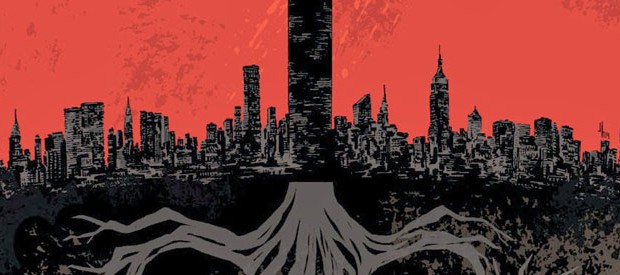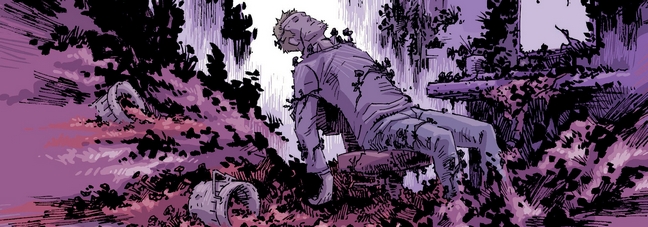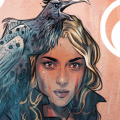One of my favourite things about science fiction is the ‘what if?’ questions the genre explores. Not just from a writing perspective – though challenging yourself with a ‘what if?’ writing exercise can be great fun – but for the reader or viewer who is prompted to themselves reflect on the question proposed by the story. This ‘what if?’ idea works beautifully in Warren Ellis’s slow burning, intriguing comic series Trees.
If you are a fan of Warren Ellis’s previous work, be warned: this isn’t the no-holds-barred crazy of Transmetropolitan, for instance. Trees is mellower and more contemplative, building up a more expansive view of the world in an original SF landscape. Despite the gentle pace, the series forces the reader to take a hard look at our current society reflected through the lens of the potential future what if’s.
They stand on the surface of the Earth like trees
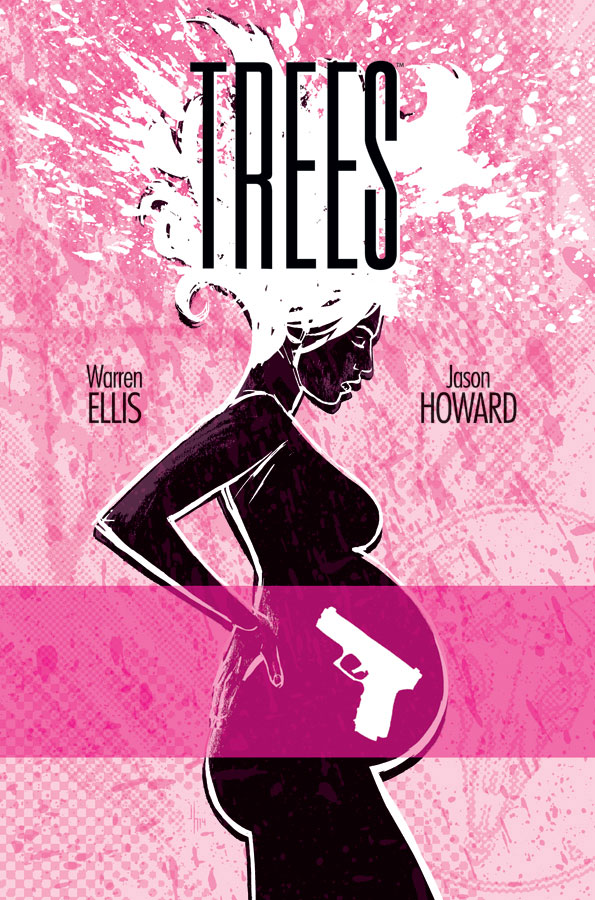 What if aliens landed on Earth? Would life go on as normal? How would we adapt?
What if aliens landed on Earth? Would life go on as normal? How would we adapt?
What if they never communicated with us and we couldn’t communicate with them? What if we couldn’t damage them? What if someone discovered a way to use them for military advantage?
What if we set up a community where cultural anarchy reigned – people could do whatever they wanted, be whoever they wanted to be?
What if after ten years on Earth, the silent aliens began growing new life?
Work-provided phones that won’t call a taxi because they want me to walk more. Fucking conspiracy.
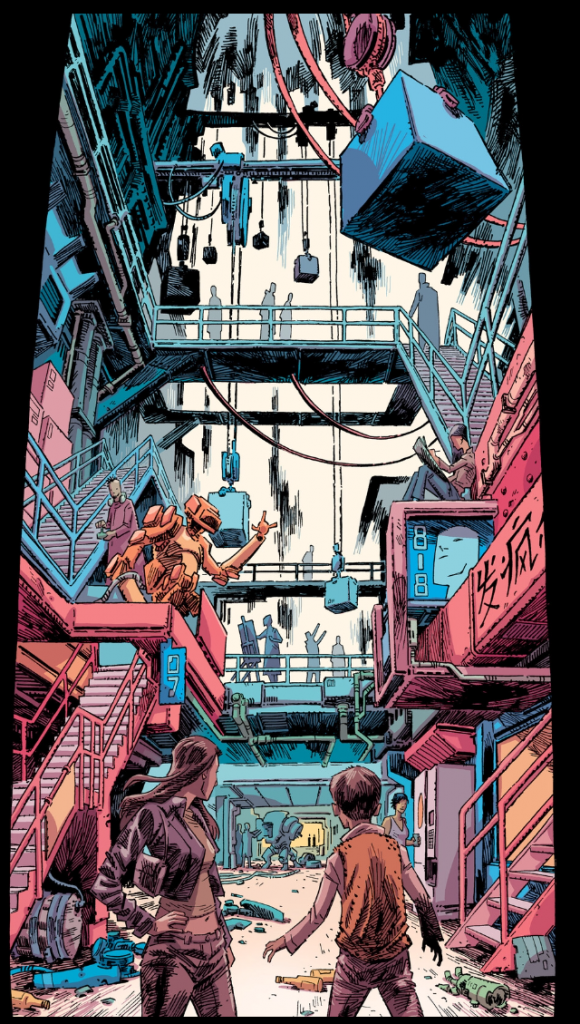 Having so many different characters and narrative threads in a comic series is unusual. For the single issue release schedule to work, the story usually requires an element of easy reading – something people can pick up once a month and not have to remember anything too complicated. But this is Warren Ellis – so fuck you. Ellis does not give two shits whether it is difficult to follow across the publication schedule. And why should he? He is Warren Ellis! Trees definitely benefits from reading as a trade paperback where the reader can follow the threads of each of the stories in a way that comes to some kind of closure or point of great change. I’m not sure I could have coped if I had read it as each single issue was released.
Having so many different characters and narrative threads in a comic series is unusual. For the single issue release schedule to work, the story usually requires an element of easy reading – something people can pick up once a month and not have to remember anything too complicated. But this is Warren Ellis – so fuck you. Ellis does not give two shits whether it is difficult to follow across the publication schedule. And why should he? He is Warren Ellis! Trees definitely benefits from reading as a trade paperback where the reader can follow the threads of each of the stories in a way that comes to some kind of closure or point of great change. I’m not sure I could have coped if I had read it as each single issue was released.
Diversity is often a problem in comics, even over an entire publisher’s range of series. Ellis sticks his middle finger in the air to that trend though, with a very diverse cast of characters in the one series, including different genders, races, sexuality, economic means/backgrounds, and roles in society. With each narrative thread we follow a very different set of characters with different concerns and surroundings allowing Ellis to get a lot of worldbuilding in without much infodumping as well as exploring a wide substrate of the society that formed after the Trees landed. With big changes to the world as we know it, obviously such an event would affect every corner of the world. However, most stories of this nature focus on a small group, effectively ignoring other classes/locations/and so on – for obvious logistical reasons. As such, it is impressive how Ellis manages to include narratives with politicians, gangs, scientists, artists, and more in such a short collection. It builds such a rich world I felt it really could be real.
I know nothing about you except that I want to move through the world with you for as long as you’ll let me.
There is no denying that like many of the SF stories being written these days, Trees is fairly bleak. And yet, it is also hopeful. Despite the strangeness and often dystopian set-up within this new Tree-ridden world, each of the narrative threads focuses on a character’s belief in change that will come: the artist is finally free to express himself, the scientist discovers something new, a woman stops putting up with an unpleasant fascist boyfriend and takes control of her own life. While not all of the stories end well, each of them explores the idea that no matter how bad things get, humans will always have hope.
Verdict: Trees might be a slow-building narrative but it pays to stick with it. Definitely worth waiting for the trades though rather than trying to read it as each single issue is released.
 Pop Verse Pop Culture Universe
Pop Verse Pop Culture Universe
